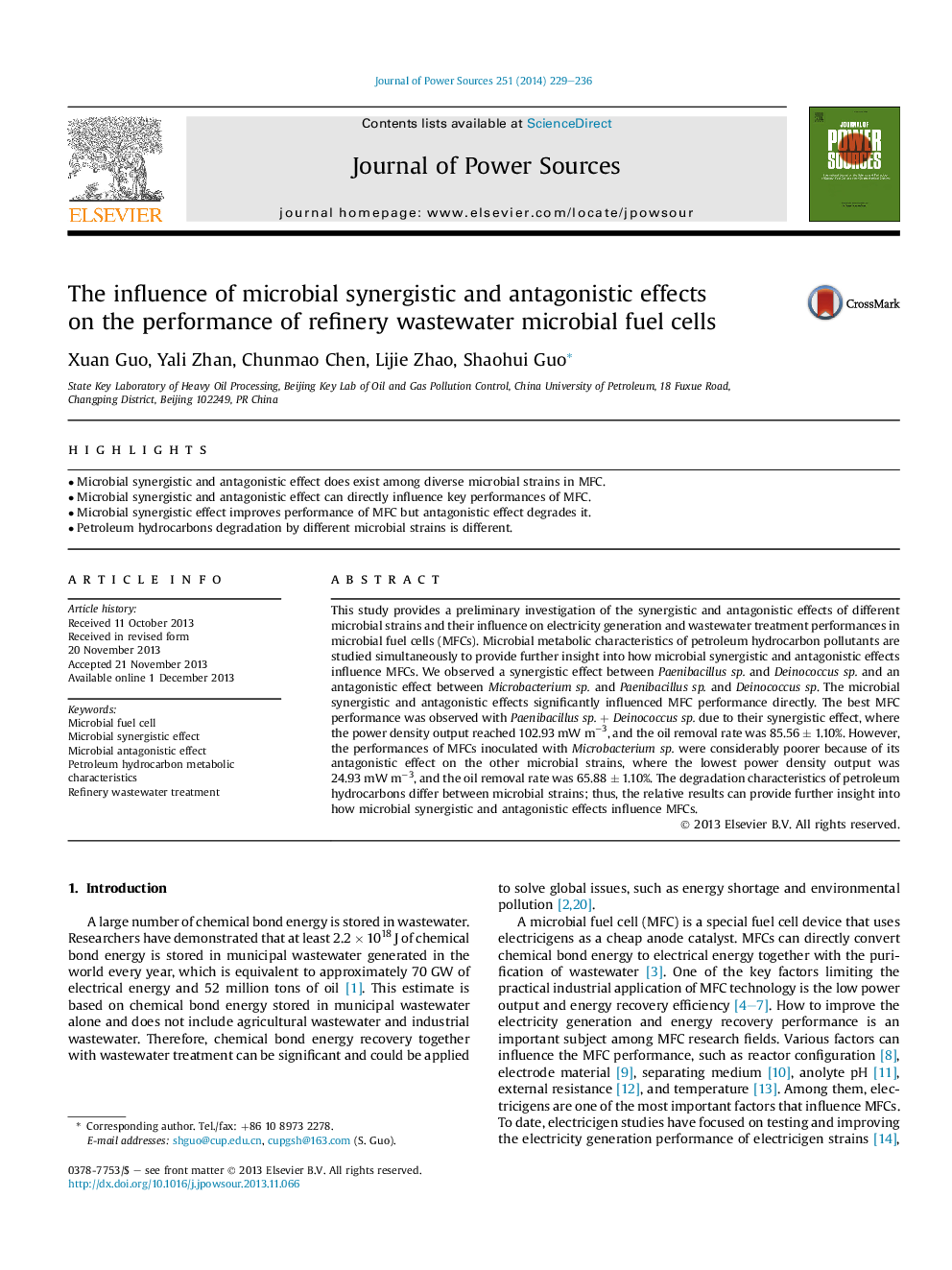| Article ID | Journal | Published Year | Pages | File Type |
|---|---|---|---|---|
| 7737610 | Journal of Power Sources | 2014 | 8 Pages |
Abstract
This study provides a preliminary investigation of the synergistic and antagonistic effects of different microbial strains and their influence on electricity generation and wastewater treatment performances in microbial fuel cells (MFCs). Microbial metabolic characteristics of petroleum hydrocarbon pollutants are studied simultaneously to provide further insight into how microbial synergistic and antagonistic effects influence MFCs. We observed a synergistic effect between Paenibacillus sp. and Deinococcus sp. and an antagonistic effect between Microbacterium sp. and Paenibacillus sp. and Deinococcus sp. The microbial synergistic and antagonistic effects significantly influenced MFC performance directly. The best MFC performance was observed with Paenibacillus sp. + Deinococcus sp. due to their synergistic effect, where the power density output reached 102.93 mW mâ3, and the oil removal rate was 85.56 ± 1.10%. However, the performances of MFCs inoculated with Microbacterium sp. were considerably poorer because of its antagonistic effect on the other microbial strains, where the lowest power density output was 24.93 mW mâ3, and the oil removal rate was 65.88 ± 1.10%. The degradation characteristics of petroleum hydrocarbons differ between microbial strains; thus, the relative results can provide further insight into how microbial synergistic and antagonistic effects influence MFCs.
Keywords
Related Topics
Physical Sciences and Engineering
Chemistry
Electrochemistry
Authors
Xuan Guo, Yali Zhan, Chunmao Chen, Lijie Zhao, Shaohui Guo,
